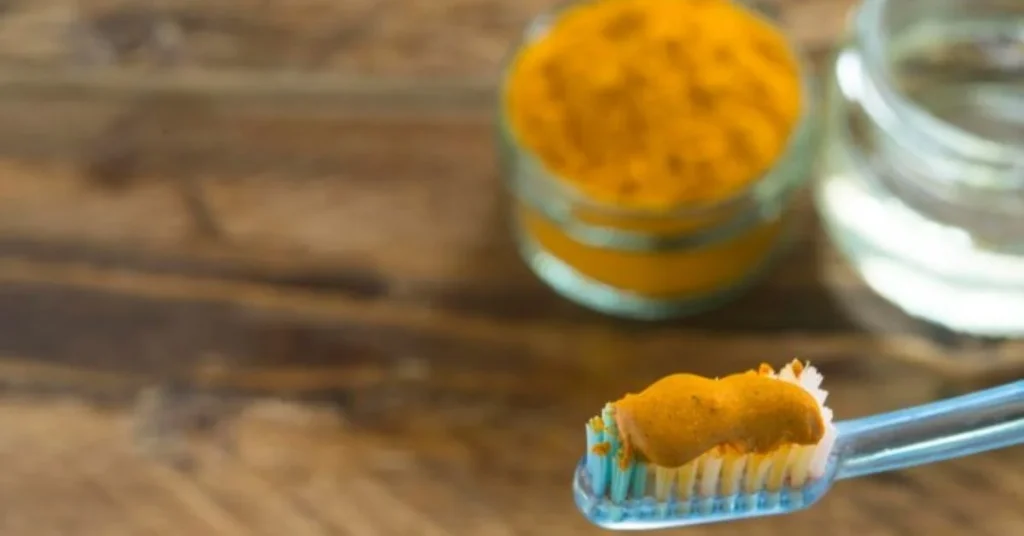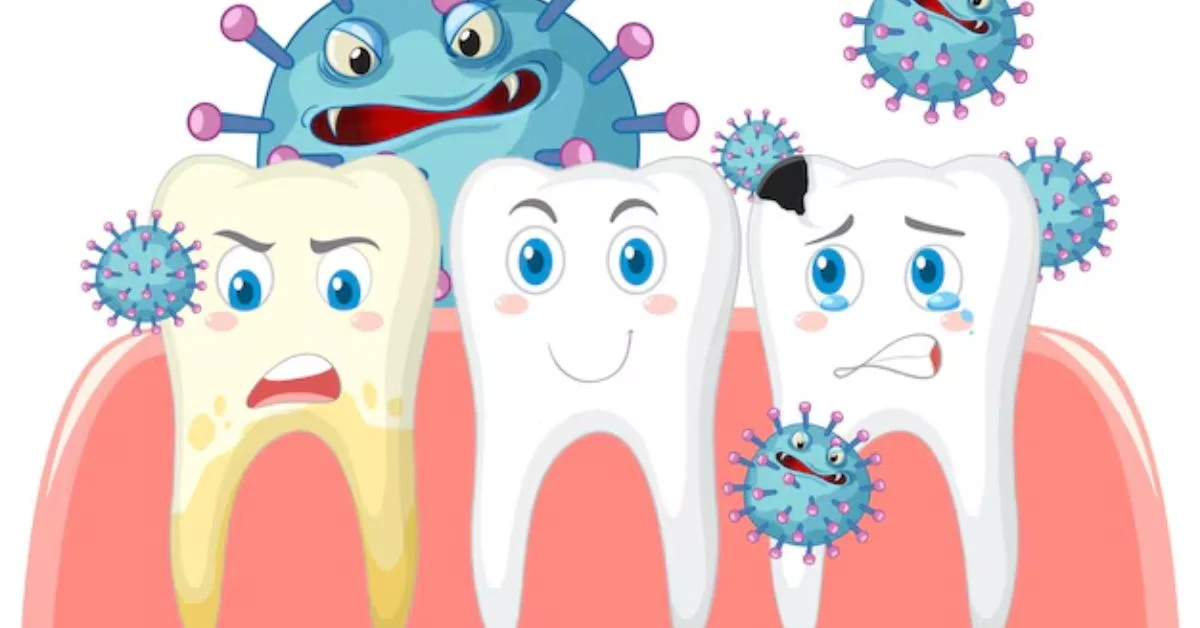Tooth infections, medically referred to as dental abscesses, are a common yet serious oral health problem that can lead to severe pain, swelling, and potential complications if left untreated. Traditional antibiotics, prescribed by dentists, are effective for treating bacterial infections. However, there is growing interest in natural alternatives for those who prefer a holistic approach. Among these, clove oil emerges as one of the strongest natural antibiotics for tooth infections, offering a combination of pain relief and antibacterial action.
This article delves into the various natural antibiotics that can help manage tooth infections, their benefits, and practical application methods. By the end, you will have a comprehensive understanding of these remedies, backed by frequently asked questions to address common concerns.
What Is the Strongest Natural Antibiotic for Tooth Infection?
Clove Oil: Nature’s Dental Solution
Clove oil has long been regarded as the most effective natural remedy for tooth infections. Its primary active ingredient, eugenol, has potent antibacterial, anti-inflammatory, and analgesic properties, making it a powerful agent against oral infections. Eugenol works by inhibiting bacterial growth, reducing inflammation, and numbing the affected area to provide immediate relief from pain.
This natural antibiotic is so effective that it is often used in dentistry as a temporary filling material for cavities and as a pain reliever in root canal treatments. For those dealing with a tooth infection at home, clove oil can serve as a quick and accessible solution.
How to Use Clove Oil:
- Mix 2–3 drops of clove oil with a teaspoon of a carrier oil, such as coconut oil or olive oil, to dilute its strength.
- Soak a cotton ball in the mixture and gently place it on the infected tooth or gum.
- Leave it in place for about 15–20 minutes before removing.
- Repeat this process 2–3 times a day until the pain and infection subside.
Other Potent Natural Antibiotics for Tooth Infections
While clove oil stands out for its effectiveness, several other natural remedies also exhibit strong antimicrobial properties and can be used to treat tooth infections.
1. Turmeric: The Golden Antibiotic
Turmeric, a bright yellow spice commonly used in cooking, contains curcumin, a compound renowned for its anti-inflammatory and antimicrobial benefits. Curcumin helps in reducing swelling, alleviating pain, and combating bacterial infections in the mouth.
Turmeric is not only effective for tooth infections but also promotes overall gum health by fighting plaque and reducing inflammation.
How to Use Turmeric for Tooth Infections:
- Mix 1 teaspoon of turmeric powder with a few drops of water to form a thick paste.
- Apply the paste directly to the infected tooth or gum.
- Leave it on for 10–15 minutes, then rinse your mouth with warm water.
- Repeat this process 2–3 times daily for best results.
2. Garlic: Nature’s Antibiotic Powerhouse
Garlic, often dubbed “nature’s antibiotic,” contains allicin, a sulfur-containing compound with strong antimicrobial and anti-inflammatory properties. Allicin has been shown to effectively kill harmful oral bacteria and relieve the pain associated with tooth infections.
How to Use Garlic:
- Crush a fresh garlic clove to release its juices.
- Apply the crushed garlic directly to the infected tooth or gum area.
- Leave it in place for about 10 minutes before rinsing your mouth with warm water.
- For added benefits, you can chew raw garlic if the taste is tolerable.
3. Tea Tree Oil: A Versatile Antimicrobial Agent
Tea tree oil is a widely used natural remedy known for its antibacterial, antifungal, and antiviral properties. Its ability to penetrate deep into tissues makes it particularly effective for combating tooth infections and reducing oral bacteria.
How to Use Tea Tree Oil:
- Dilute 1–2 drops of tea tree oil in a teaspoon of carrier oil.
- Apply the mixture to the infected area using a cotton swab or your clean fingertip.
- Alternatively, add a drop of tea tree oil to a glass of warm water and use it as a mouthwash. Be sure not to swallow the solution.
4. Aloe Vera: Soothing and Healing
Aloe vera is celebrated for its soothing and healing properties. It contains compounds such as aloin and aloe-emodin, which have antibacterial and anti-inflammatory effects. Aloe vera gel can provide relief from pain and swelling associated with tooth infections while also combating harmful bacteria.
How to Use Aloe Vera:
- Extract fresh aloe vera gel from a leaf or use store-bought organic aloe vera gel.
- Apply the gel directly to the infected tooth or gum area.
- Let it sit for about 10 minutes before rinsing your mouth with water.
- Repeat this process 2–3 times a day for maximum benefits.

5. Saltwater Rinse: A Timeless Remedy
Rinsing with saltwater is a simple yet effective remedy for tooth infections. Saltwater works as a natural disinfectant by drawing out bacteria and toxins from the infected area while reducing swelling and promoting healing.
How to Use Saltwater:
- Dissolve 1 teaspoon of salt in a glass of warm water.
- Swish the solution around your mouth for 30 seconds, focusing on the infected area.
- Spit it out and repeat 2–3 times a day until the infection improves.
6. Hydrogen Peroxide: A Potent Antibacterial Solution
Hydrogen peroxide is a powerful disinfectant that can help fight bacterial infections and alleviate abscess pain. It also helps reduce plaque and heal bleeding gums.
How to Use Hydrogen Peroxide:
- Mix equal parts of 3% hydrogen peroxide and warm water to create a mouthwash.
- Swish the solution around your mouth for 30 seconds.
- Spit it out and rinse your mouth thoroughly with plain water.
- Repeat 1–2 times daily.
7. Oregano Essential Oil: A Concentrated Solution
Oregano oil is rich in carvacrol and thymol, compounds known for their antibacterial and antioxidant properties. These compounds can help fight tooth infections and provide pain relief.
How to Use Oregano Essential Oil:
- Mix 2–3 drops of oregano oil with a teaspoon of carrier oil.
- Use a cotton swab to apply the mixture to the infected tooth or gum.
- Leave it on for 10 minutes before rinsing.
- Repeat twice daily.
8. Propolis: Bee-Derived Healing
Propolis, a resin-like substance produced by bees, contains a range of antimicrobial compounds. It is highly effective in reducing swelling, pain, and bacteria in tooth infections.
How to Use Propolis:
- Apply a small amount of propolis tincture directly to the infected area.
- Leave it on for a few minutes before rinsing with water.
- Use it twice daily for best results.
How to Make Homemade Antibiotics for Tooth Infection
Creating homemade antibiotics involves combining multiple natural ingredients with antibacterial properties. Below is a simple recipe:
Ingredients:
- 1 teaspoon turmeric powder
- 1 crushed garlic clove
- 2–3 drops of clove oil
- 1 teaspoon coconut oil
Instructions:
- Mix all the ingredients into a thick paste.
- Apply the paste to the infected tooth or gum using a clean fingertip or cotton swab.
- Leave it on for 10–15 minutes before rinsing your mouth with warm water.
- Repeat this process 2–3 times daily for relief.
Over-the-Counter Antibiotics for Tooth Infection
For those seeking quick relief, over-the-counter products like hydrogen peroxide-based mouthwashes or pain-relieving gels with benzocaine can help. However, these are not a replacement for professional dental treatment and should only be used temporarily.
What Is the Best Antibiotic for Gum Infection?
Dentists often prescribe antibiotics like amoxicillin, clindamycin, or metronidazole for severe gum infections. However, natural remedies like clove oil and turmeric can complement these treatments, providing relief while promoting healing.
What Is the Strongest Natural Antibiotic for Humans?
Clove oil is one of the strongest natural antibiotics for humans, effective not only for tooth infections but also for other bacterial infections. Its high eugenol content makes it a powerful remedy for various health issues.
Conclusion
Tooth infections can be painful and disruptive, but natural remedies like clove oil, garlic, turmeric, and tea tree oil provide effective solutions. These remedies help combat bacteria, reduce inflammation, and alleviate pain, offering a holistic approach to oral health. While these solutions are beneficial, it’s important to consult a dentist for a proper diagnosis and treatment plan. Combining natural remedies with professional care ensures the best possible outcome.
FAQs
1. How to make homemade antibiotics for tooth infection?
Homemade antibiotics can be made by combining ingredients like turmeric, garlic, and clove oil. Mix them into a paste and apply to the infected tooth or gum.
2. What are over-the-counter antibiotics for tooth infection?
Over-the-counter options include hydrogen peroxide-based mouthwashes and benzocaine gels, which provide temporary relief but don’t treat the underlying infection.
3. What is the best antibiotic for gum infection?
Dentists commonly prescribe amoxicillin or clindamycin for gum infections. Natural remedies like clove oil can also help.
4. What is the strongest natural antibiotic for humans?
Clove oil is one of the strongest natural antibiotics due to its eugenol content, effective for both tooth infections and general bacterial infections.
5. How long does it take for a tooth infection to heal with natural remedies?
Healing time varies but typically takes a few days to a week. Consistent application of natural remedies can speed up the process.
6. Can natural antibiotics replace prescription antibiotics?
Natural antibiotics can manage mild infections but should not replace prescription antibiotics for severe cases. Always consult a dentist for proper treatment.









